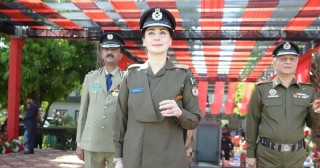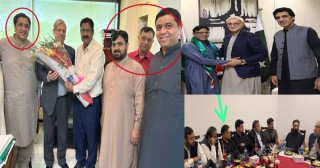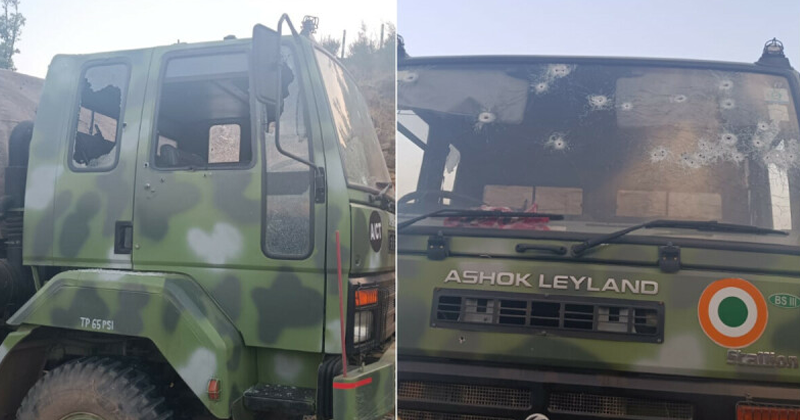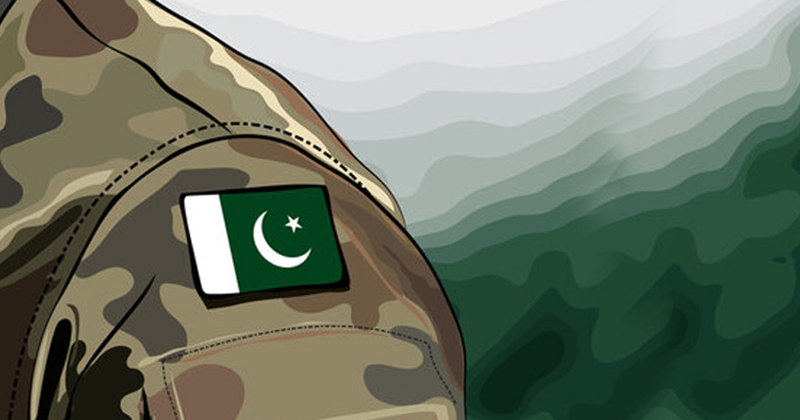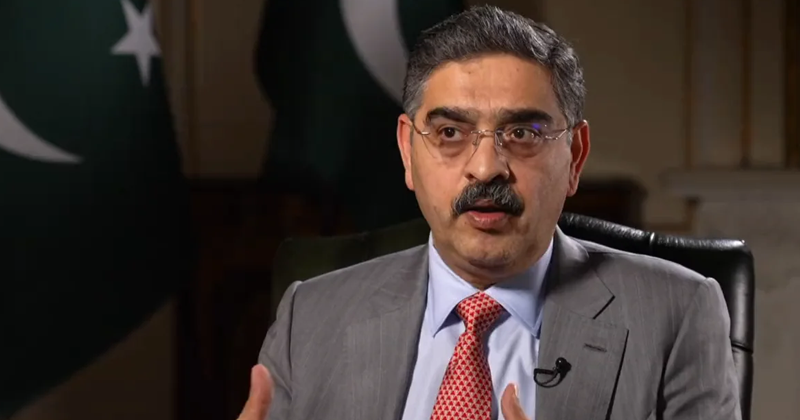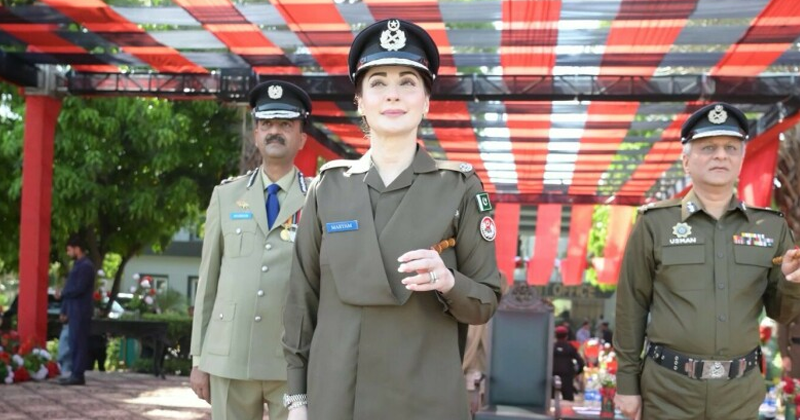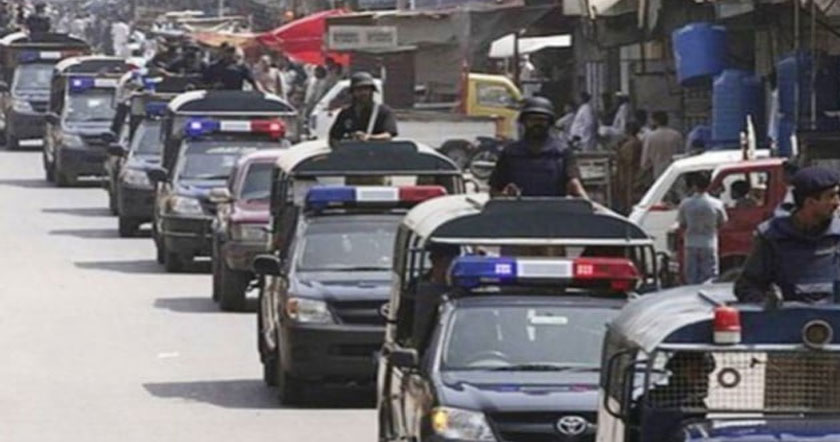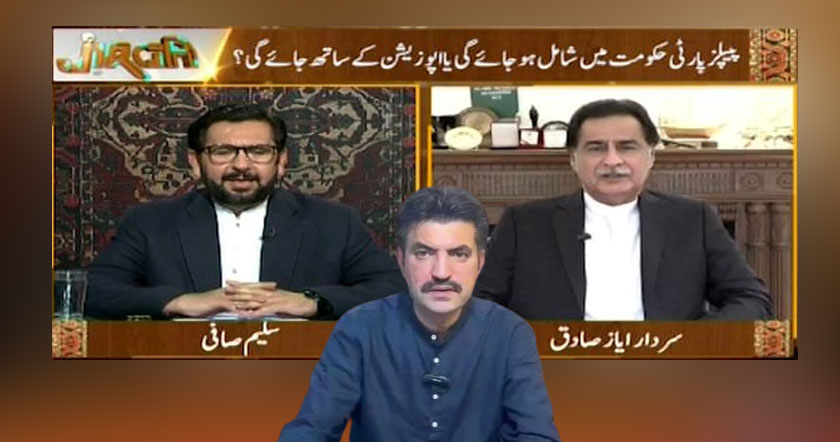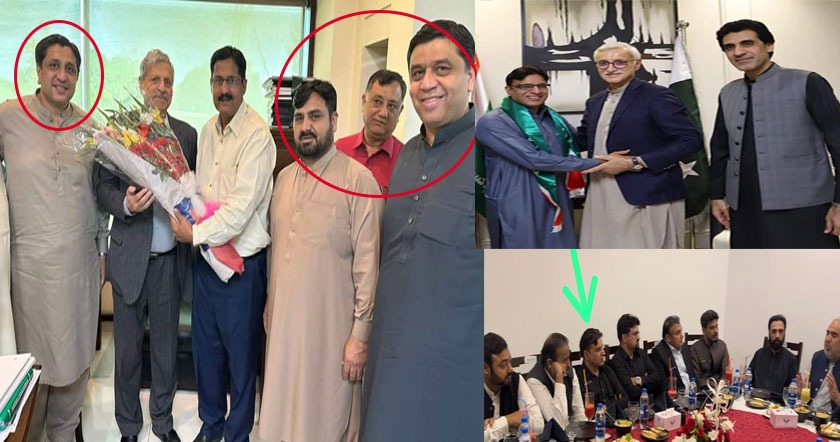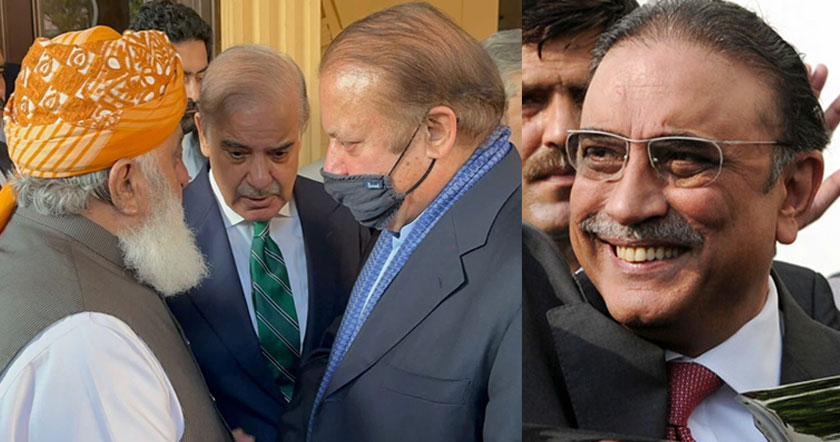Wednesday, Jun. 22, 2011
Pakistan's Most Powerful Man: The General in His Labyrinth
By Omar Waraich / Islamabad
It has been a grim seven weeks for Pakistan's powerful generals. The unilateral raid on Osama bin Laden's compound opened them up to charges of complicity abroad and a sense of deep embarrassment at home. The criticism sharpened after a major terrorist attack on a naval base in the southern port city of Karachi, with many critics unfavorably contrasting the privileges the military enjoys against its recent failures to provide security. And then long-standing suspicions of the security establishment's darkest side were heightened by the murder of journalist Syed Saleem Shahzad, who had warned of threats to his life from the military's leading spy agency. All that foreboding seemed to be affirmed by a chilling video showing paramilitary rangers shooting dead a youth in Karachi in broad daylight.
"It's amazing the level of criticism that the military leadership is facing," says Talat Masood, a retired lieutenant general turned analyst. "It's clearly the worst in its history," he adds, reflecting on the decades since he joined the Pakistani army in the 1950s. For General Ashfaq Kayani, the Pakistani army chief, the current mood is particularly galling. Since being elevated to the most powerful office in Pakistan, Kayani has carefully worked to rebuild his institution's image after the ruinous final years of President cum General Pervez Musharraf's military rule. At home and abroad, he won plaudits for renewing a commitment to fighting Islamist militancy, with successful military operations in the Swat Valley and much of South Waziristan. While he has made a series of interventions backstage, Kayani has shunned an overtly political role. (See "Dr. al-Zawahiri, I Presume: The Hunt Begins for al-Qaeda's New Boss.")
Now, Kayani's stock is in free fall as he finds himself embattled on at least three fronts. Washington has seized on the bin Laden raid as a moment to apply fresh pressure. Leveraging Pakistan's humiliation, it has issued more aggressive demands to help capture al-Qaeda's remaining leaders and move decisively against the proAfghan Taliban militants Pakistan has obstinately refused to touch in the past. Tensions have risen again in recent days as the CIA complained that intelligence passed on to the Directorate for Inter-Services Intelligence (ISI) was used to tip off the very militants it was supposed to be targeting. At the same time, the CIA has raised concerns about the ISI's arrests of five Pakistani informants it used to gather intelligence on bin Laden's compound in Abbottabad, the garrison town where he was hiding. U.S.-Pakistani relations are now said to have plummeted to a fresh nadir.
The U.S.'s unilateral raid has also left Kayani vulnerable to competing pressure from within his own ranks. The indignity of being invaded by an ally crowns a narrative of accumulating grievances. The army's middle ranks have long been angered by a sense that the U.S. has not been sensitive enough to their sovereignty or loss of nearly 3,000 lives; a perceived refusal to address concerns about Kashmir; Washington's proximity to New Delhi; and even conspiracy theories suggesting U.S. support for the Pakistani Taliban. "In the top ranks there are real concerns about whether soldiers will obey orders in some circumstances," says a senior Western diplomat. Kayani is also faced with fears of extremist infiltration of his ranks. On Tuesday, the Pakistani army announced that it was holding Brigadier Ali Khan, a senior officer working at the General Headquarters, on suspicion of links to the banned extremist group Hizb ut-Tahrir (HT). For the past 15 years, the group has tried to surreptitiously recruit army officers in an attempt to effect a military coup that would pave the way for the establishment of an Islamic caliphate. After the bin Laden raid, HT had been distributing leaflets exhorting army officers to rise up in revolt against their leadership, the Wall Street Journal reported. "It is a slap in the respected officers' faces that on May 2 American helicopters intruded in the dark of night and barged into a house like thieves," the pamphlet read. "It could not have been possible without the acquiescence of your high officials." Khan's arrest comes just weeks after widely voiced suspicions that the May 22 naval-base attack had support from inside.
Keen observers of the Pakistani army are highly skeptical of claims of divisions in the top ranks or suggestions that Kayani's own position is imperiled. "My understanding is that there is a debate on different issues within the corps commanders and senior officers from the General Headquarters," says Shuja Nawaz, director of the South Asia Center at the Atlantic Council in Washington. "It is not in the form of pressure on General Kayani as such, but on what to do in response to the criticism." Masood, the retired general, dismisses outright the prospect of the corps commanders easing Kayani out. "All of them are his protgs," he says, noting that Kayani has been responsible for each appointment in his over three years as chief. "What is happening is that there's a collective failure of the military, not the failure of an individual. They all have the same thinking."
Similarly, there are well-founded doubts about a "colonels' coup." Unlike the armies of the Arab world or Latin America, the Pakistani army's chain of command has never been broken. Army chiefs have only been gently eased into retirement by fellow generals after their positions, as military dictators, were deemed too damaging for the institution. Nawaz, a historian of the Pakistani army, recalls that the only junior officers' coup attempt, in 1973, was thwarted in its early stages by military intelligence. But there is one scenario, though perhaps remote, that could provoke unforeseeable consequences. The most worrisome reaction, says the Western diplomat, may come if "there's a further U.S. incursion and soldiers are ordered not to fire on it." attempting to placate the lower ranks, the corps commanders recently issued a strongly worded statement pushing back against perceived U.S. pressure. They offered to divert U.S. military aid into the government coffers, ordered that the U.S.'s military presence in Pakistan be diminished to a minimum and lashed out against the CIA's use of drones in the tribal areas. "They have to show their middle ranks that they can be tough," says the Western diplomat. The rhetoric is also reflective of fiercer anti-American sentiment in Pakistan. "The more anti-American you are, the more patriotic you are regarded," laments retired general Masood.
But the rhetoric is not sustainable. It exaggerates the extent to which the top generals are prepared to confront the U.S. Behind closed doors, top U.S. and Pakistani officials have agreed to form a joint-counterterrorism task force that will oversee CIA and ISI intelligence operations in Pakistan; drones will no longer take off from the Shamsi air base in Baluchistan but will continue from Afghanistan, the presence of U.S. Special Forces will discreetly continue, and Pakistan will be included in discussions on an endgame settlement in Afghanistan. "General Kayani does not believe that a worse confrontation with the U.S. will be in his interests," says the Western diplomat.
The rhetoric is also an ill-advised attempt to mask the military's own shortcomings, says retired general Masood. "Their thinking is, 'If the current criticism continues the way it is, then our institution will be completely destroyed.'" But the prickly attitude, revealing little patience with the sort of criticism civilian politicians have endured for decades, risks ignoring important challenges. "The leadership seems to be more worried about image than performance," adds Masood. "They are trying to protect themselves and don't want the light thrown on their weaknesses." What seems missing from the top generals' thinking is that by continuing to meddle in politics, through the control of defense and foreign policies, and not subordinating itself to civilian authority, it will continue to attract hostile attention. (See photos of the Taliban's war in Pakistan.)
After the U.S. and his own military, the third source of criticism is the Pakistani public, led by opposition politicians, civil-society campaigners and journalists. A major test of Kayani's leadership will come with how the military will respond to two high-profile commissions that have been established to investigate bin Laden's presence in Abbottabad and the murder of journalist Shahzad. With the intense scrutiny, there are hopes of greater transparency and accountability. "Historically, it has never happened," notes analyst Nawaz. But, he adds, "The military is very conscious of trying to meet these statements head-on."
The coming weeks will tell whether Kayani can restore his institution's standing, maintain the alliance with the U.S., win back the support of his junior officers and at the same time demonstrate a commitment to Pakistan's fledgling democracy. Urged in different directions, will the general successfully forge a path out of the labyrinth he now finds himself in?(http://www.time.com/time/printout/0,8816,2079092,00.html)
Pakistan's Most Powerful Man: The General in His Labyrinth
By Omar Waraich / Islamabad
It has been a grim seven weeks for Pakistan's powerful generals. The unilateral raid on Osama bin Laden's compound opened them up to charges of complicity abroad and a sense of deep embarrassment at home. The criticism sharpened after a major terrorist attack on a naval base in the southern port city of Karachi, with many critics unfavorably contrasting the privileges the military enjoys against its recent failures to provide security. And then long-standing suspicions of the security establishment's darkest side were heightened by the murder of journalist Syed Saleem Shahzad, who had warned of threats to his life from the military's leading spy agency. All that foreboding seemed to be affirmed by a chilling video showing paramilitary rangers shooting dead a youth in Karachi in broad daylight.
"It's amazing the level of criticism that the military leadership is facing," says Talat Masood, a retired lieutenant general turned analyst. "It's clearly the worst in its history," he adds, reflecting on the decades since he joined the Pakistani army in the 1950s. For General Ashfaq Kayani, the Pakistani army chief, the current mood is particularly galling. Since being elevated to the most powerful office in Pakistan, Kayani has carefully worked to rebuild his institution's image after the ruinous final years of President cum General Pervez Musharraf's military rule. At home and abroad, he won plaudits for renewing a commitment to fighting Islamist militancy, with successful military operations in the Swat Valley and much of South Waziristan. While he has made a series of interventions backstage, Kayani has shunned an overtly political role. (See "Dr. al-Zawahiri, I Presume: The Hunt Begins for al-Qaeda's New Boss.")
Now, Kayani's stock is in free fall as he finds himself embattled on at least three fronts. Washington has seized on the bin Laden raid as a moment to apply fresh pressure. Leveraging Pakistan's humiliation, it has issued more aggressive demands to help capture al-Qaeda's remaining leaders and move decisively against the proAfghan Taliban militants Pakistan has obstinately refused to touch in the past. Tensions have risen again in recent days as the CIA complained that intelligence passed on to the Directorate for Inter-Services Intelligence (ISI) was used to tip off the very militants it was supposed to be targeting. At the same time, the CIA has raised concerns about the ISI's arrests of five Pakistani informants it used to gather intelligence on bin Laden's compound in Abbottabad, the garrison town where he was hiding. U.S.-Pakistani relations are now said to have plummeted to a fresh nadir.
The U.S.'s unilateral raid has also left Kayani vulnerable to competing pressure from within his own ranks. The indignity of being invaded by an ally crowns a narrative of accumulating grievances. The army's middle ranks have long been angered by a sense that the U.S. has not been sensitive enough to their sovereignty or loss of nearly 3,000 lives; a perceived refusal to address concerns about Kashmir; Washington's proximity to New Delhi; and even conspiracy theories suggesting U.S. support for the Pakistani Taliban. "In the top ranks there are real concerns about whether soldiers will obey orders in some circumstances," says a senior Western diplomat. Kayani is also faced with fears of extremist infiltration of his ranks. On Tuesday, the Pakistani army announced that it was holding Brigadier Ali Khan, a senior officer working at the General Headquarters, on suspicion of links to the banned extremist group Hizb ut-Tahrir (HT). For the past 15 years, the group has tried to surreptitiously recruit army officers in an attempt to effect a military coup that would pave the way for the establishment of an Islamic caliphate. After the bin Laden raid, HT had been distributing leaflets exhorting army officers to rise up in revolt against their leadership, the Wall Street Journal reported. "It is a slap in the respected officers' faces that on May 2 American helicopters intruded in the dark of night and barged into a house like thieves," the pamphlet read. "It could not have been possible without the acquiescence of your high officials." Khan's arrest comes just weeks after widely voiced suspicions that the May 22 naval-base attack had support from inside.
Keen observers of the Pakistani army are highly skeptical of claims of divisions in the top ranks or suggestions that Kayani's own position is imperiled. "My understanding is that there is a debate on different issues within the corps commanders and senior officers from the General Headquarters," says Shuja Nawaz, director of the South Asia Center at the Atlantic Council in Washington. "It is not in the form of pressure on General Kayani as such, but on what to do in response to the criticism." Masood, the retired general, dismisses outright the prospect of the corps commanders easing Kayani out. "All of them are his protgs," he says, noting that Kayani has been responsible for each appointment in his over three years as chief. "What is happening is that there's a collective failure of the military, not the failure of an individual. They all have the same thinking."
Similarly, there are well-founded doubts about a "colonels' coup." Unlike the armies of the Arab world or Latin America, the Pakistani army's chain of command has never been broken. Army chiefs have only been gently eased into retirement by fellow generals after their positions, as military dictators, were deemed too damaging for the institution. Nawaz, a historian of the Pakistani army, recalls that the only junior officers' coup attempt, in 1973, was thwarted in its early stages by military intelligence. But there is one scenario, though perhaps remote, that could provoke unforeseeable consequences. The most worrisome reaction, says the Western diplomat, may come if "there's a further U.S. incursion and soldiers are ordered not to fire on it." attempting to placate the lower ranks, the corps commanders recently issued a strongly worded statement pushing back against perceived U.S. pressure. They offered to divert U.S. military aid into the government coffers, ordered that the U.S.'s military presence in Pakistan be diminished to a minimum and lashed out against the CIA's use of drones in the tribal areas. "They have to show their middle ranks that they can be tough," says the Western diplomat. The rhetoric is also reflective of fiercer anti-American sentiment in Pakistan. "The more anti-American you are, the more patriotic you are regarded," laments retired general Masood.
But the rhetoric is not sustainable. It exaggerates the extent to which the top generals are prepared to confront the U.S. Behind closed doors, top U.S. and Pakistani officials have agreed to form a joint-counterterrorism task force that will oversee CIA and ISI intelligence operations in Pakistan; drones will no longer take off from the Shamsi air base in Baluchistan but will continue from Afghanistan, the presence of U.S. Special Forces will discreetly continue, and Pakistan will be included in discussions on an endgame settlement in Afghanistan. "General Kayani does not believe that a worse confrontation with the U.S. will be in his interests," says the Western diplomat.
The rhetoric is also an ill-advised attempt to mask the military's own shortcomings, says retired general Masood. "Their thinking is, 'If the current criticism continues the way it is, then our institution will be completely destroyed.'" But the prickly attitude, revealing little patience with the sort of criticism civilian politicians have endured for decades, risks ignoring important challenges. "The leadership seems to be more worried about image than performance," adds Masood. "They are trying to protect themselves and don't want the light thrown on their weaknesses." What seems missing from the top generals' thinking is that by continuing to meddle in politics, through the control of defense and foreign policies, and not subordinating itself to civilian authority, it will continue to attract hostile attention. (See photos of the Taliban's war in Pakistan.)
After the U.S. and his own military, the third source of criticism is the Pakistani public, led by opposition politicians, civil-society campaigners and journalists. A major test of Kayani's leadership will come with how the military will respond to two high-profile commissions that have been established to investigate bin Laden's presence in Abbottabad and the murder of journalist Shahzad. With the intense scrutiny, there are hopes of greater transparency and accountability. "Historically, it has never happened," notes analyst Nawaz. But, he adds, "The military is very conscious of trying to meet these statements head-on."
The coming weeks will tell whether Kayani can restore his institution's standing, maintain the alliance with the U.S., win back the support of his junior officers and at the same time demonstrate a commitment to Pakistan's fledgling democracy. Urged in different directions, will the general successfully forge a path out of the labyrinth he now finds himself in?(http://www.time.com/time/printout/0,8816,2079092,00.html)




